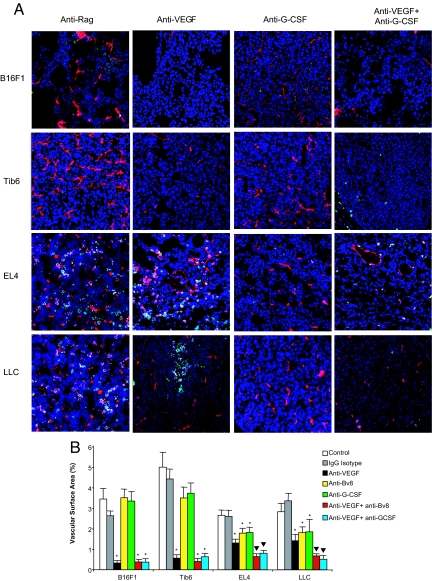Fig. 3.
Anti-Bv8 or anti-G-CSF reduces tumor angiogenesis. (A) Sections from tumors treated with mono or combination treatments were stained with anti-CD31 (shown in red), anti-CD11b (shown in green), and anti-Gr1 (shown in pink) antibodies as described in SI Methods. Images of tumors (20×) were taken in a Zeiss confocal microscope. Due to space limitation, images from the control, anti-VEGF, anti-G-CSF, and combination of anti-VEGF and anti-G-CSF treatments have been included here. Images from other treatment groups are shown in Fig. S4. Consistent with FACS data (Fig. 2A), anti-G-CSF treatment significantly reduced CD11b+Gr1+ cells in the tumors. (B) Quantification of tumor vasculature indicated that anti-G-CSF or anti-Bv8 inhibits angiogenesis as monotherapy or in combination with anti-VEGF in refractory tumors. By using ImageJ, areas of CD31+ in each section were measured in 20–25 images from each treatment (n = 3). Bars represent the mean VSA ± SEM in each treatment. *, significant difference (P < 0.05) when comparing VSA in mono or combination therapy vs. controls. ▼, difference in combination treatment vs. anti-VEGF alone is significant (P < 0.05).

